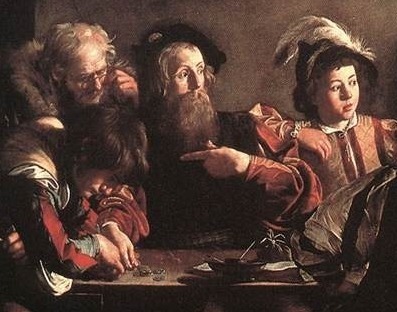A superficial reading of today’s First Reading and Gospel may give us the impression that Elijah is easier on his disciple than Our Lord is with his, but the Second Reading can shed a little light on the apparent difference.
In today’s First Reading we see Elisha called by Elijah to follow him and become a prophet. The Lord sent Elijah to invite Elisha to follow him. Every call comes from the Lord. Elisha asks Elijah if we can put his affairs in order before leaving. Scholars differ about what Elijah meant when he responds, “Have I done anything to you?” It seems he is simply saying that Elisha has not started following yet and is free to do what he wants. Elisha does a last gesture of kindness and concern for his family before dedicating his life to the Lord’s service.
Paul reminds us in the Second Reading that life is a battle between the flesh and the Spirit. The Christian life presents a new way of living, living in a way that you are not enslaved to things and situations, but alive in the Spirit and focused on the spiritual goal. Even good things, if sought for the wrong reasons, can oppose a life of the Spirit. The ultimate measure of Christian living is whether you are truly loving your neighbor or not. Every direction we take in life is measured by our intentions in taking the next step.
A common denominator in today’s First Reading and Gospel is that the disciple asks to do something before following his master. The subtle difference is that, unlike Elijah, Our Lord can always read hearts and see whether that heart is speaking from the flesh or from the Spirit. Elisha is “liquidating his assets” and doing one last gesture of love for his family before departing. The hearts of disciples in today’s Gospel are only known to Our Lord, and it is in his response to them that we see a potential conflict between Spirit and flesh that he is trying to help them address.
The first disciple in today’s Gospel perhaps doesn’t understand that following Our Lord is a lifelong commitment: he’s not just headed to the Rabbi’s house instead of his own, he is committed to permanently follow Jesus, just as every Christian is called to do, and go wherever he leads them.
The second disciple wants to attend to important family business, but sometimes following Our Lord requires sacrifice and self-denial: in telling the dead to bury their dead Our Lord perhaps is telling him too that the family business he is concerned about can already be handled by another member of his family. Remember here that, unlike Elijah, the Lord can read hearts.
The last potential disciple wants to go home and say goodbye first: Our Lord sees something in that request that would put flesh over Spirit. Perhaps the disciple would go home and stay there. Perhaps his father or mother would convince him not to leave. Following Christ is the best thing we can do for ourselves and our family, and we must never lose sight of that.
Most Acts of Contrition today include the promise to avoid the “near occasion of sin” or “whatever leads me to sin.” We all know there are places both physical and virtual that we should not go, and many of them have no warning signs posted, because there are people out there who want you to fall into danger so that they can profit from it. Certain situations can also lead us to sin, situations we must strive to avoid. Lastly, certain attitudes can make us skate on thin ice when it comes to living a life of virtue and holiness. They should raise yellow flags or red flags in our conscience depending on how close they bring us to spiritual ruin. Take some time this week with the Holy Spirit’s help to assess your moral “early warning system” and whether there are certain places, situations, or attitudes that you need to weed out of your life.
Readings: 1 Kings 19:16b, 19–21; Psalm 16:1–2, 5, 7–11; Galatians 5:1, 13–18; Luke 9:51–62. See also 13th Week in Ordinary Time, Sunday, Cycle C, 10th Week of Ordinary Time, Saturday, Year II and 26th Week in Ordinary Time, Wednesday.

